News & Media
Africa Charter two years later – the road travelled thus far
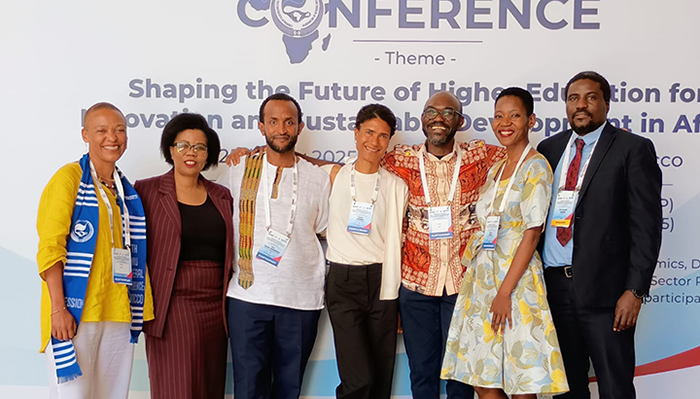
Bringing solutions towards realising the Africa Charter’s envisioned higher education for a prosperous continent, from left: Prof Shose Kessi (UCT), Prof Puleng LenkaBula (Unisa), Dr Eyob Balcha Gebremariam (Research Fellow, University of Bristol), Prof Isabella Aboderin (University of Bristol), Prof Divine Fuh (UCT), Prof Puleng Segalo (Unisa) and Prof Kenneth Matengu (UNAM)
The Association of African Universities (AAU) hosted its 16th Quadrennial General Conference (QGC) in Rabat, Morocco, from 21 to 25 July 2025. The event is hosted by two esteemed Moroccan AAU member institutions: Mohammed VI Polytechnic University (UM6P) and Mohammed V University (UM5).
As articulated by the AAU: "The General Conference, convened quadrennially, is the Association’s premier gathering, which brings together a diverse range of higher education stakeholders, including representatives of AAU member institutions, associate members and observers. Under the theme Shaping the Future of Higher Education for Innovation and Sustainable Development in Africa, the AAU 16th General Conference seeks to tackle the pressing challenges facing higher education in Africa. By exploring innovative solutions, it aims to create the platform for stakeholders to converge around key strategies to drive sustainable growth and development, ultimately transforming Africa’s higher education institutions to address the continent’s socio-economic challenges and realise the vision of Africa’s Agenda 2063."
Speaking at the conference's opening, the AAU Secretary-General, Prof Olusola Oyewole, reminded delegates that the association was established in Rabat, Morocco in 1967, so being back in Rabat is a significant milestone. Oyewole emphasised the importance of education for the advancement of universities in Africa and pointed out that Africa has the world's highest number of young people. "Therefore, for the future of the continent, the youth need to be empowered with quality education to enable them to contribute meaningfully to the development of Africa," said Olusola.
It was at the AAU’s 2023 Conference of Rectors, Vice-Chancellors and Presidents of African Universities (COREVIP) that the Africa Charter for Transformative Research Collaborations was launched in Namibia. Two years later, the Charter has garnered more than 120 signatories from around the world. The core facilitating institutions (University of South Africa, University of Cape Town and University of Bristol) hosted a plenary on the first day at the official opening of the 2025 conference, focusing on the road travelled thus far.
The focus was on (re)engaging the wider African higher education constituency and key partners, the relevance of the transformative agenda encapsulated in the Africa Charter, the remarkable journey travelled thus far, and envisioned action going forward.
The team emphasised all the milestones reached in the past two years, including the formation of a steering committee, establishment of a three-year programme of work, expanding awareness, and engagement with various scholarly communities, research management stakeholders, higher education networks, leadership, funding agencies and international policy actors. The team further highlighted the importance of the core concern and ambition of the Africa Charter, focusing on its meaning for the continent and international scholarship and its relevance within the unfolding geopolitical context.
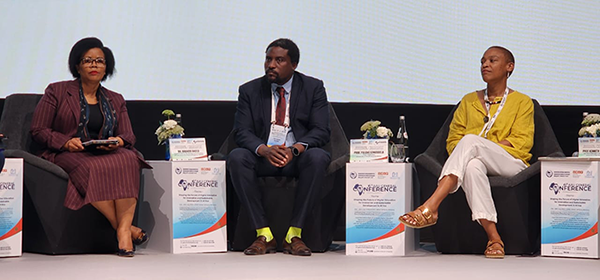
Panel discussion on Africa’s higher education landscape on stage, with Prof Puleng LenkaBula, Unisa Principal and Vice-Chancellor, Prof Kenneth Matengu, Vice-Chancellor of the University of Namibia, and Prof Shose Kessi, Dean of Humanities, University of Cape Town
Offering insights and reflections as part of the panel responding to the progress and importance of the Charter, Unisa’s Principal and Vice-Chancellor, Prof Puleng LenkaBula, commended the commitment and impact of the Charter in the reimagination of research partnerships between Africa and the Global North. She continued: "Our institutions need to be at the centre of the emancipatory journey in ensuring that education is a resource that advances society, democracy and our aspirations for the future. We have the best opportunities to transform our impact as universities in Africa by ensuring that our scholarship, our sciences, and our innovations are contributing to the global knowledge arena."
LenkaBula further highlighted how the Charter challenges African university leaders to reflect and step back from being dependent on external partners and instead look inward and co-construct knowledge systems that speak to the needs of the African continent.
Reflecting of the journey ahead, the Africa Charter team shared their ongoing work with a future focus on critical policy and practice engagement, pathfinder interventions, continued scholarly debate, joint learning for Charter signatories, and wider stakeholders globally – to foster an evolution of the extant community of interest that has coalesced around the Africa Charter into a genuine community of action seeking its implementation.
Further, there are plans to extend and deepen endorsements globally with the intention to cascade down within various institutions, beyond institutional leadership. Critical future steps shared also included creating a 'playbook' intended to support reflection processes on existing partnerships, attending to what the Charter principles mean in practice, translating the Charter into various languages such as French, Portuguese and kiSwahili, and establishing a roadmap on what it means to be a Charter signatory.
* By Prof Puleng Segalo, Chief Albert Luthuli Research Chair
Publish date: 2025-07-25 00:00:00.0


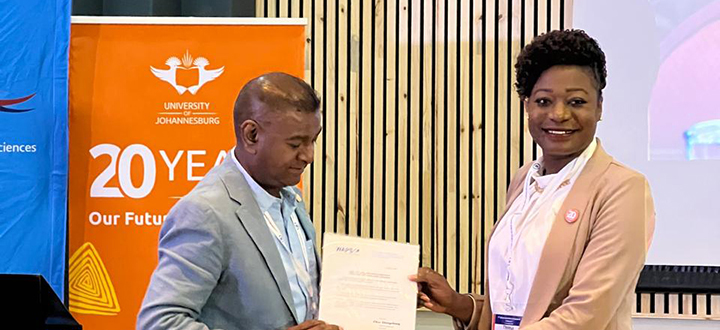 Unisa co-hosts major operations management conference
Unisa co-hosts major operations management conference
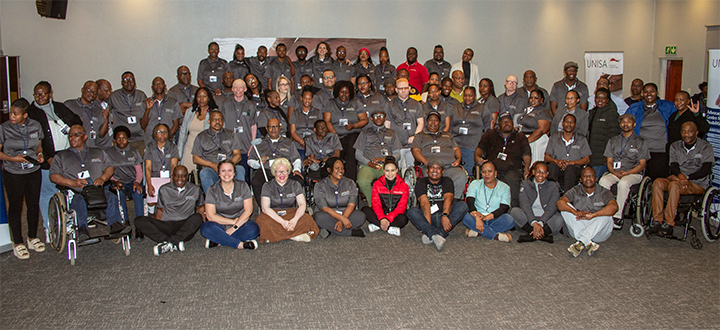 Strengthening disability-inclusive practices across higher education
Strengthening disability-inclusive practices across higher education
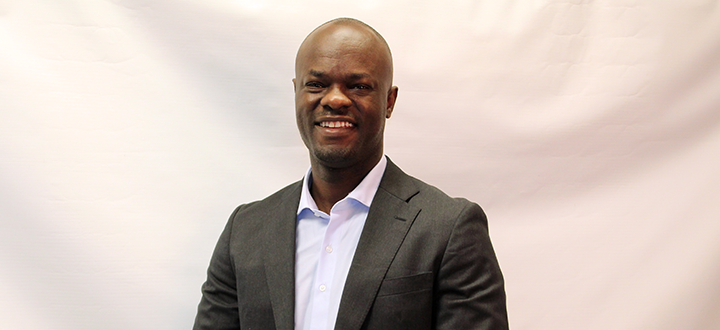 Unisa astrophysicist receives prestigious Royal Society award
Unisa astrophysicist receives prestigious Royal Society award
 Unisa's eminent women academics recognised for science excellence
Unisa's eminent women academics recognised for science excellence
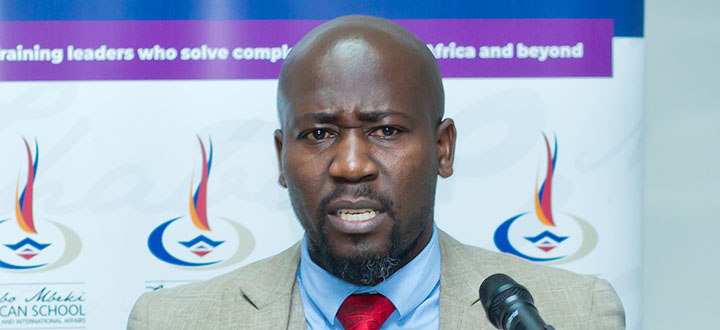 Illicit trade in Africa’s natural resources: Experts sound the alarm at Unisa seminar
Illicit trade in Africa’s natural resources: Experts sound the alarm at Unisa seminar